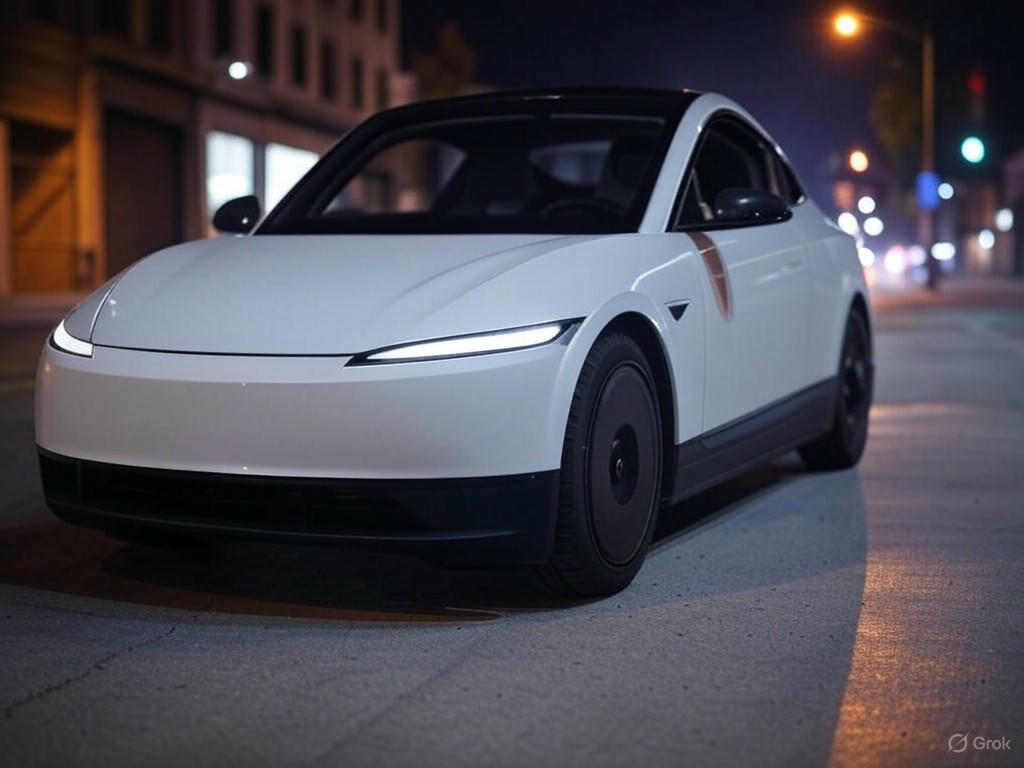Tesla’s Robotaxi Rollout: A Risky Bet on Unproven Tech
Tesla is gearing up to unveil its much-anticipated Robotaxi service in Austin, Texas, a move that has sparked both excitement and skepticism across the tech and automotive industries. The electric vehicle giant, led by visionary CEO Elon Musk, has long promised a future where autonomous vehicles revolutionize transportation. However, as the launch date approaches, concerns are mounting over whether Tesla is truly ready to deliver on its bold claims or if this is merely a high-stakes publicity stunt.
At the heart of the controversy is Tesla’s reliance on its Full Self-Driving (FSD) technology, which, despite years of development, still faces significant scrutiny. Critics argue that the system is not yet equipped to handle the complexities of urban environments without human intervention. Reports of unexpected behavior, such as abrupt stops or failure to recognize certain obstacles, have fueled doubts about the safety of deploying these vehicles as fully autonomous taxis. In a city like Austin, with its bustling streets and unpredictable traffic patterns, the risks of rolling out unproven tech could be catastrophic. Industry watchers are questioning whether Tesla’s aggressive timeline is driven by innovation or a need to maintain investor confidence amid fluctuating stock prices.
Beyond technical challenges, there’s a broader debate about the ethical implications of Tesla’s approach. If Robotaxi vehicles are involved in accidents, who bears the responsibility—the company, the software, or the passengers? Regulatory bodies have yet to establish clear guidelines for autonomous vehicle liability, leaving a gray area that could expose Tesla to legal battles. Moreover, the public’s trust in self-driving technology remains fragile after high-profile incidents involving other companies. Tesla’s decision to push forward with a public launch, rather than extended testing in controlled environments, feels to many like a gamble that prioritizes spectacle over safety. Musk’s history of overpromising—whether it’s production timelines or ambitious projects like the Cybertruck—only adds to the perception that this launch might be more about hype than substance.
Despite the skepticism, there’s no denying the potential of Tesla’s vision. A successful Robotaxi service could redefine urban mobility, reduce traffic congestion, and lower carbon emissions by encouraging shared transportation over personal car ownership. Tesla’s supporters argue that the company has a track record of defying expectations, pointing to its dominance in the EV market as proof of its ability to innovate under pressure. If the Robotaxi launch proves even partially successful, it could cement Tesla’s position as a leader in the autonomous vehicle race, ahead of competitors like Waymo and Cruise.
As the Austin debut looms, the world watches with bated breath. Will Tesla’s Robotaxi be the game-changer Musk envisions, or will it stumble under the weight of its own ambition? Only time will tell, but one thing is certain: this launch is a pivotal moment for Tesla, one that could either solidify its legacy or expose the limits of its daring approach. The stakes couldn’t be higher.


